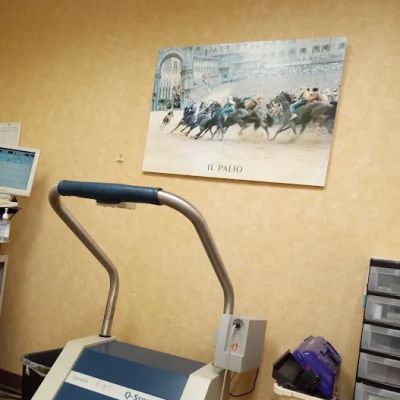How to Monitor Your Heart Health at Home
- 1. The Importance of Monitoring Heart Health
- 2. Tools You Can Use to Monitor Your Heart Health at Home
- 3. How to Monitor Your Blood Pressure
- 4. How to Track Your Heart Rate
- 5. Symptoms You Should Watch for
- 6. Lifestyle Changes to Improve Heart Health
- 7. Real-Life Examples of Successful Heart Health Monitoring
1. The Importance of Monitoring Heart Health
Monitoring your heart health is one of the most effective ways to prevent cardiovascular diseases and ensure that your heart remains in good condition. As heart disease remains one of the leading causes of death worldwide, being proactive about your heart health is crucial. Regular monitoring allows you to detect potential problems early, making it easier to manage risk factors such as high blood pressure, high cholesterol, or an irregular heartbeat before they escalate into more serious health concerns.

2. Tools You Can Use to Monitor Your Heart Health at Home
Thanks to advancements in health technology, there are several tools available that can help you monitor your heart health from the comfort of your home. These tools allow you to keep track of critical data such as blood pressure, heart rate, and even oxygen levels, all of which provide valuable insights into your heart's health. Here are some tools you can use to monitor your heart health:
- Blood Pressure Monitor: A device that helps you track your blood pressure at home.
- Heart Rate Monitor: A device that tracks your heart rate, often available in wearable form like smartwatches.
- Oximeter: A small device that measures the oxygen saturation level in your blood, an important indicator of heart and lung function.
- Fitness Tracker: Many fitness trackers now include features that monitor your heart rate, sleep patterns, and even your level of physical activity.
3. How to Monitor Your Blood Pressure
High blood pressure (hypertension) is one of the major risk factors for heart disease. Monitoring your blood pressure regularly can help you detect hypertension early and make the necessary lifestyle changes or seek treatment. Here's how you can monitor your blood pressure at home:
- Choose the Right Monitor: Opt for an automatic digital blood pressure monitor that fits your arm properly. Wrist and finger monitors are not as reliable.
- Take Measurements Correctly: Sit quietly for at least 5 minutes before taking a reading. Ensure that your arm is supported and at heart level when the cuff is inflated.
- Track Your Readings: Record your readings regularly and share them with your healthcare provider for proper assessment and guidance.
4. How to Track Your Heart Rate
Your heart rate can provide insights into your cardiovascular health. Monitoring your heart rate can help you understand how well your heart is functioning and whether your fitness levels are improving. You can track your heart rate using:
- Wearable Devices: Fitness trackers and smartwatches can measure your heart rate continuously, providing a quick and easy way to monitor your heart's activity throughout the day.
- Manual Measurement: You can also check your heart rate manually by placing your fingers on your wrist or neck, counting the number of beats in 60 seconds. This can give you a general idea of your heart's rhythm and rate.
It's important to monitor both your resting heart rate (when you're at rest) and your heart rate during exercise. A higher resting heart rate can be an indicator of potential heart health issues.
Capital Health Medical Center – Hopewell
capital health medical center hopewell
1 Capital Way, Pennington, NJ 08534, USA

5. Symptoms You Should Watch for
While monitoring your heart health at home is a great preventive measure, it’s essential to pay attention to certain symptoms that may indicate a serious issue. Here are some red flags that should not be ignored:
- Chest pain: A common symptom of heart-related problems, particularly if it’s severe or accompanied by shortness of breath or sweating.
- Shortness of breath: Difficulty breathing, especially during physical activity or when lying down, can be a sign of heart disease.
- Irregular heartbeats: Palpitations or a racing heart can indicate arrhythmias or other heart issues.
- Fatigue: Unexplained tiredness or weakness can be a sign that your heart isn’t pumping blood efficiently.
If you notice any of these symptoms, it’s important to seek medical attention promptly to avoid serious complications.
6. Lifestyle Changes to Improve Heart Health
While monitoring your heart health is essential, making heart-healthy lifestyle changes is equally important for maintaining good cardiovascular health. Here are some lifestyle adjustments that can support your heart:
- Eat a balanced diet: A diet rich in fruits, vegetables, whole grains, and lean proteins can help lower cholesterol and reduce the risk of heart disease.
- Exercise regularly: Physical activity strengthens the heart, improves circulation, and helps maintain a healthy weight.
- Quit smoking: Smoking is a major risk factor for heart disease, so quitting can significantly improve heart health.
- Manage stress: Chronic stress can negatively impact heart health. Practice relaxation techniques such as meditation, deep breathing, or yoga.
7. Real-Life Examples of Successful Heart Health Monitoring
Many individuals have successfully used at-home monitoring to improve their heart health. For example, John, a 50-year-old man with a family history of heart disease, started tracking his blood pressure and heart rate regularly at home using a digital monitor and a fitness tracker. After noticing an increase in his blood pressure readings, he took the necessary steps to make lifestyle changes—reducing his sodium intake, increasing physical activity, and managing his stress. Within a few months, his blood pressure returned to normal levels, and he felt more energetic and healthy.
Similarly, Lisa, a 60-year-old woman with a history of high cholesterol, began monitoring her heart health after her doctor advised her to track her heart rate regularly. She used a smartwatch to track her heart rate during exercise, which allowed her to better understand her cardiovascular fitness. By incorporating more cardio into her routine, her heart health improved, and she reduced her cholesterol levels naturally, avoiding the need for medication.
These examples highlight the importance of proactive heart health monitoring and the power of making informed, health-conscious decisions based on the data collected at home. If you're looking for tools to help with your own heart health journey, visit HeartCare Hub for expert recommendations and products that can assist in monitoring and maintaining your cardiovascular health.





















Deborah Heart and Lung Center
deborah heart and lung center
200 Trenton Rd, Browns Mills, NJ 08015, USA